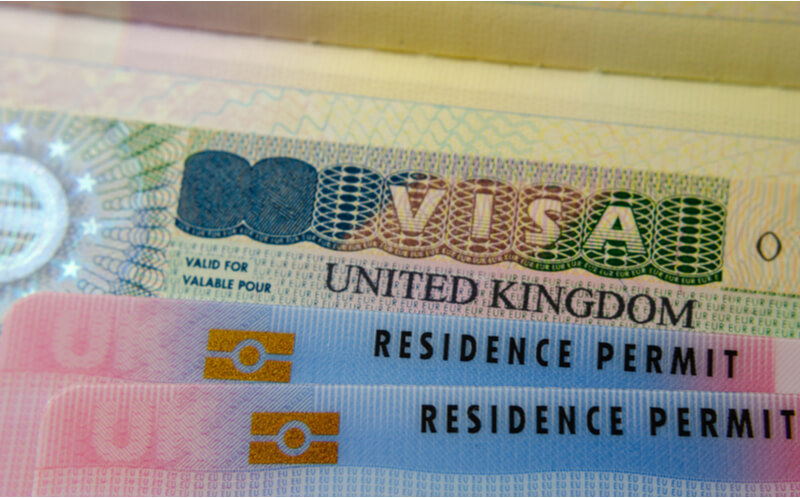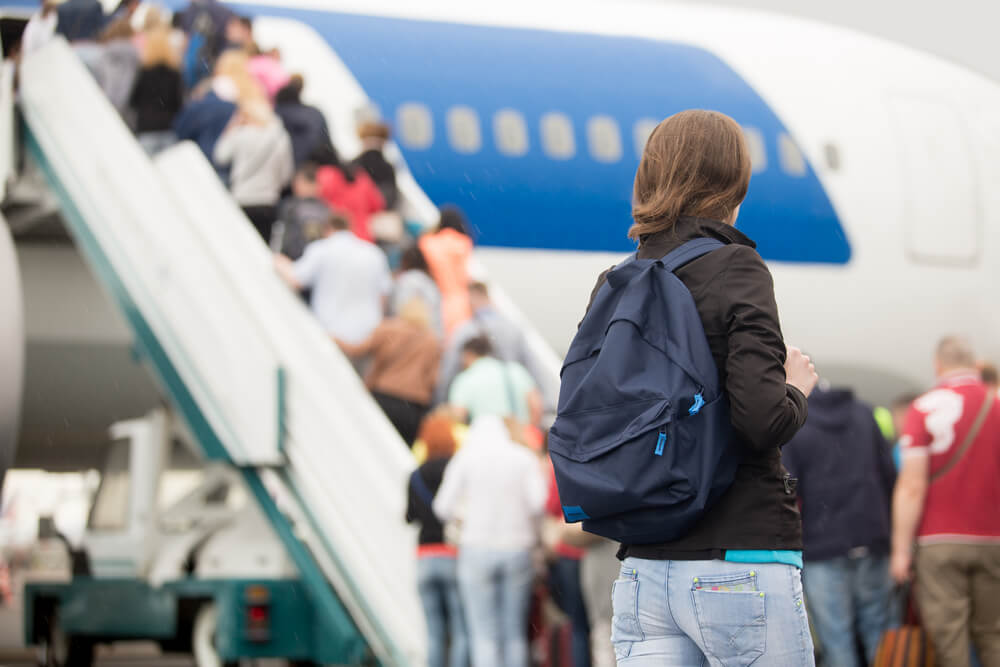The International Students Guide
Moving to the UK and becoming an international student can be pretty daunting. With lots of research and information to absorb about visas and safety, we’ve decided to take some of your stress away by compiling everything you need to know into one easy-to-digest guide. Take a look below and learn all about becoming an international student in the UK.
UK Requirements for International Students
Before you book your flight, there are some requirements you need to make sure you’re up to date with before committing to studying internationally. Understanding the English language, what visa you should apply for, and your safety as an overseas student are all paramount to your application process and enjoying living as an international student.
English Language Certification
When applying to become an international student, you may need to take one of the IELTS tests to support your application to study abroad. The International Language Testing System (IELTS) is the world’s most popular English language test worldwide. The assessment includes listening, reading, writing and speaking.
Don’t worry; the British Council has free online courses and resources to help you prepare for your test. These tests are a completely normal process for any global migration. They will ensure your English is at a standard which means you’ll not only succeed in your course but will also feel more comfortable integrating into UK culture and your local community.
TOEIC and TOEFL English language proficiency tests are no longer valid for UK visas. For more information, contact the British Council.

Student Visas for the UK
Before you commence your studies and come to the UK, you must find out if you need a visa and what kind of visa you need. There are different types of visas, which are determined by the following:
- How long you’re studying for
- The type of course you are studying
- Your country of origin
- Your age
Check if you need a visa by visiting the government website. Once you have established whether or not you need a UK student visa, it’s important to make sure you’re applying for the one that best suits your circumstances.
What are the different types of student visas for the UK?
Short-Term Study Visa
A short-term study visa is suitable for those doing a short English language course in the UK who are outside of the European Economic Area (EEA) and Switzerland. If you are from the EU or EEA, you can generally study for up to 6 months without a visa. However, you must also meet the eligibility requirements, which you can find here.
Fees
For a short-term study visa, it costs £200. However, you will also need to pay a healthcare surcharge of £470 that allows you to access the NHS while you are here.
How to apply?
You can apply for a visa up to 3 months before your travel date to the UK. You should receive your decision on your visa within three weeks of submitting your request. You can check the guide processing times to find out how long it might take to get a visa, depending on the country you are applying from.

Tier 4 Child Student Visa
A child student visa is for those aged 4-17 who want to study in the UK. Regarding university, most people do not apply until they are over 18, so we won’t go into much detail about this visa today. However, you can find out more on the Gov website.
Tier 4 General Student Visa
If you are 18 and over, a general student visa might be what you need for the course you wish to study. If you have been offered a place on a higher education course in the UK, can speak, read, write and understand the English language, have enough money to support yourself and pay for your course, are from a country that’s not in the EEA or Switzerland, and meet other requirements (stated here). You are eligible for a general student visa.
You can arrive in the UK a week before your course starts if your course lasts six months or less. If your course lasts over six months, you can arrive in the UK a month before. The length of your stay in the UK depends on the course type you’re studying and what you have already completed.
Fees
A general student visa will cost £363 to apply for if you are from outside the UK or £490 from within. You’ll also have to pay the healthcare surcharge as part of your application. Check how much you’ll have to pay before you apply.
How to apply?
Applying for a general student visa is similar to a short-term visa. You can apply for a student visa up to 6 months before the start of your course if you are applying from outside of the UK; however, if you are already in the UK, you can apply from 3 months before.
You should get the decision within eight weeks, but you can check the guide processing times to find out how long it might take to get a visa, depending on the country you are applying from.
Things you need:
- Details of your passport.
- A recent photograph.
- A ‘Confirmation of Acceptance for Studies (CAS) form from your course provider (worth 30 points).
- Proof of adequate English language skills through one of the UKBA-approved English language tests (or perhaps through an alternate test or Skype interview with your course provider).
- Proof you have financial support throughout your stay in the UK, e.g. bank statements.
- You may be required to produce documents showing your academic qualifications.
- You may need to attend an interview or biometric test, including a digital fingerprint scan.
- You may also be required to have certain medical vaccinations.
Student visa FAQs
Is an appointment compulsory for UK student visas?
Appointments are necessary for many visas for the UK, including student visas. These appointments are an opportunity to prove your eligibility and give details such as your biometrics. Biometric information includes having your photograph and fingerprints taken. Make sure to have all of your paperwork prepared before attending the appointment.
How long can I stay in the UK on a student visa?
This depends on the type of visa you have and your course length. You can get up to 11 months’ stay for a short-term study visa. If you have the general student visa, you can stay for the duration of your course – most people can stay up to 5 years for a degree and two years for below degree level.
Can I stay in the UK before or after my student visa?
As each visa has different rules, it is essential to check the visa requirements specific to you. Some student visas allow you to travel to the UK up to 1 month before your course starts, whereas others only allow one week. Make sure you check your visa restrictions before booking your travel.
If you wish to stay in the UK after your student visa has expired, it is important to check whether you need a tourist visa, student visa or work permit. Overstaying your visa in the UK can have many serious consequences that could affect you, especially if you want to return to the UK in the future.

UK Safety for Overseas Students
The UK is a safe country to study, work and live in, but you can always take some extra steps to ensure your security and overall well-being. Ensuring you and your belongings are safe will help you enjoy your time in the UK.
- When travelling, avoid unmarked taxi cars and always keep your belongings with you. Report anything suspicious on your travels, such as unattended luggage, to the transport staff.
- Always lock your doors and windows when you leave your home or at night whilst you’re sleeping to prevent the risk of intruders. If you need to store a spare key, use a lockbox rather than stashing it under a doormat.
- Create a buddy system with your friends where you can travel in groups or check that each other has gotten home safely. Leave notes for your housemates and let your family know where you travel and when you’re expected home. Encourage your friends to do the same.
- When visiting large cities or at night, try to stick to well-lit and busier streets. Avoid having your gadgets on show, and don’t carry large amounts of cash. Stay vigilant of pickpocketers and plan your travel route before leaving home.
Explore our guide to staying safe in London for more in-depth advice on how to navigate the capital.
Moving to another country for your studies is an exciting time. Check which visa you need, what the requirements are and if you need to attend any appointments or tests. Being prepared with your application will remove unnecessary stress and better your chances of being accepted. Once you reach the UK, enjoy your time, stay safe, and don’t overstay your visa.
Find your perfect student accommodation in London with urbanest – discover central locations and luxury amenities to get the ultimate student experience while in the UK.